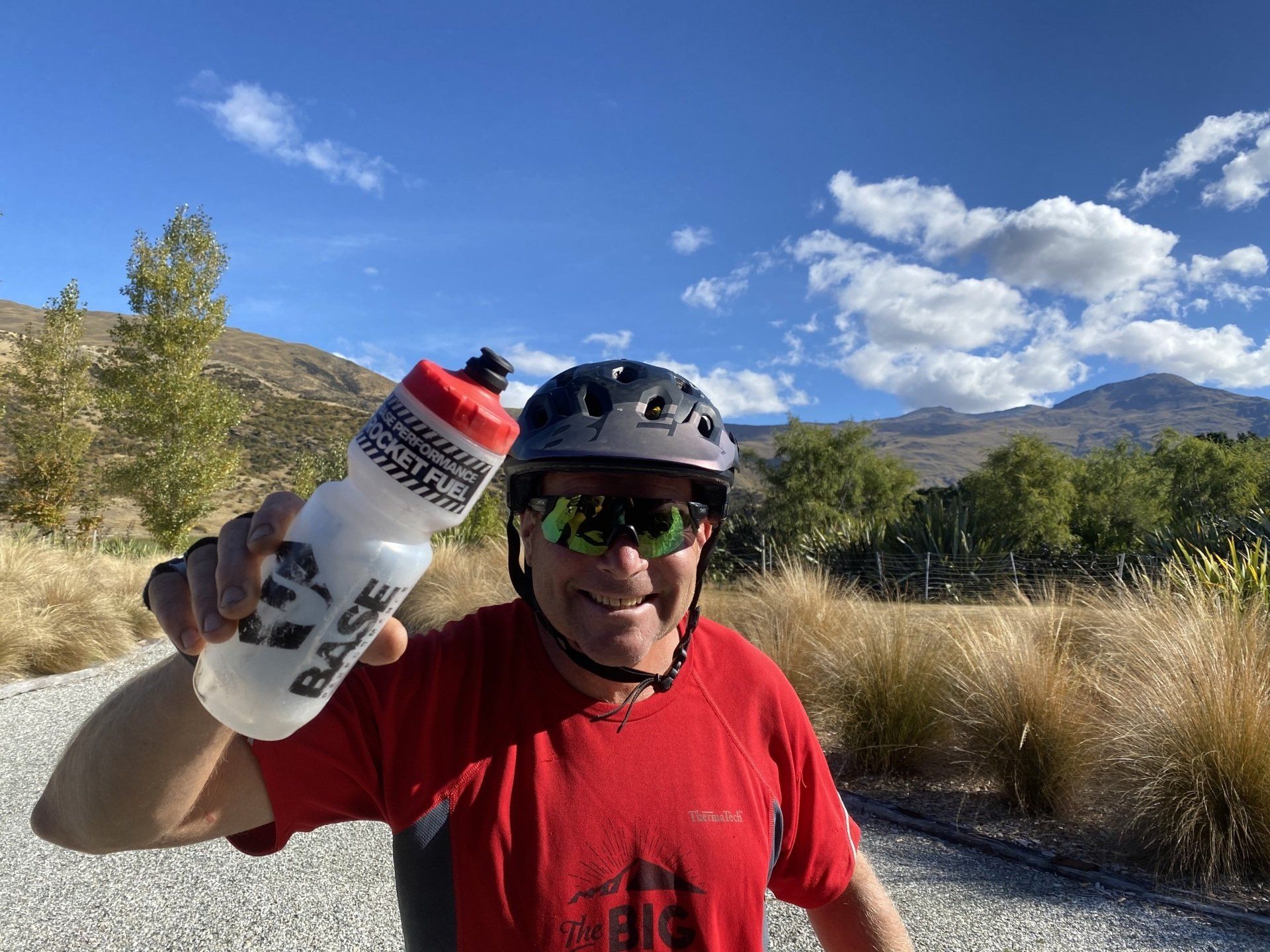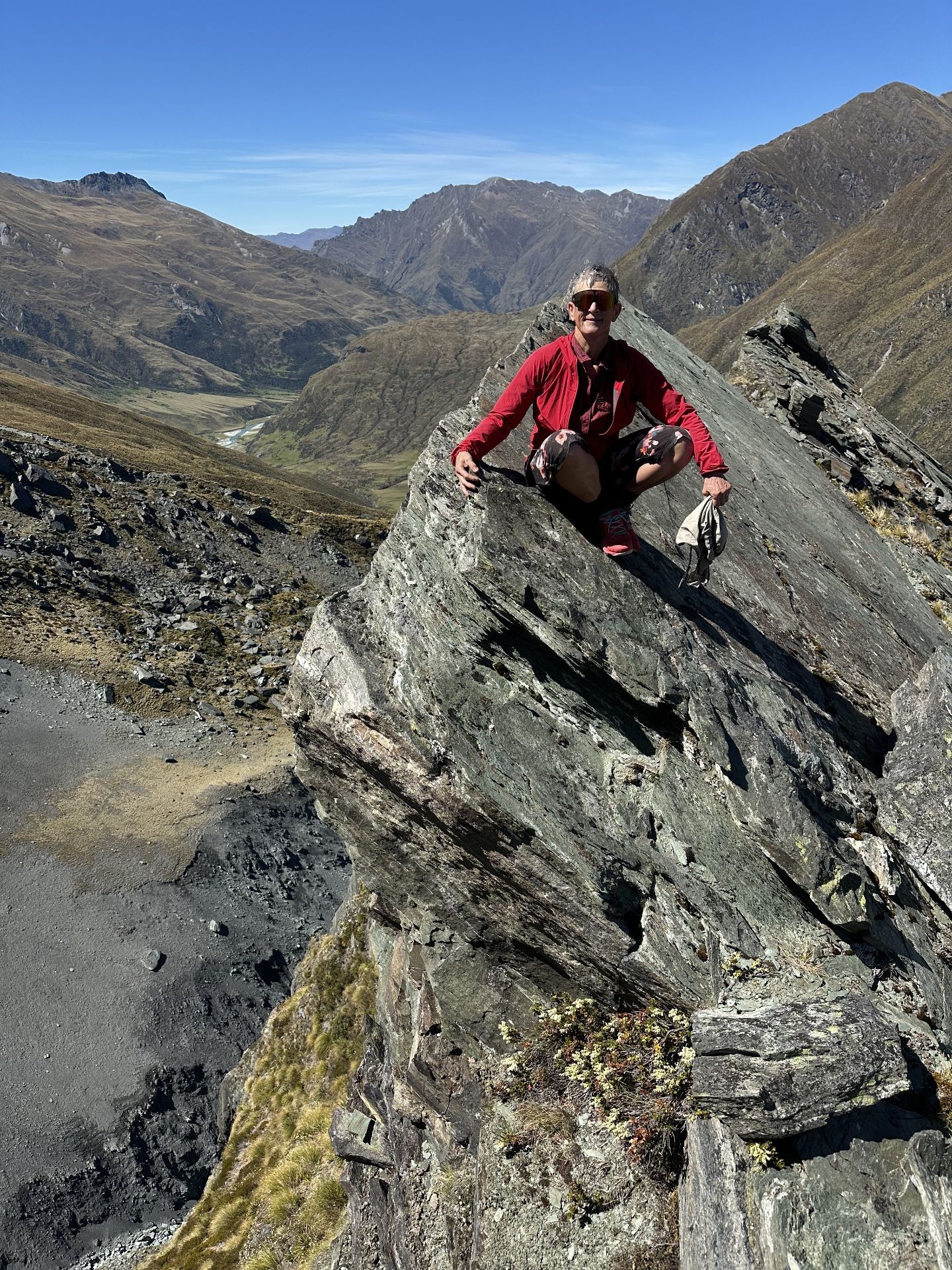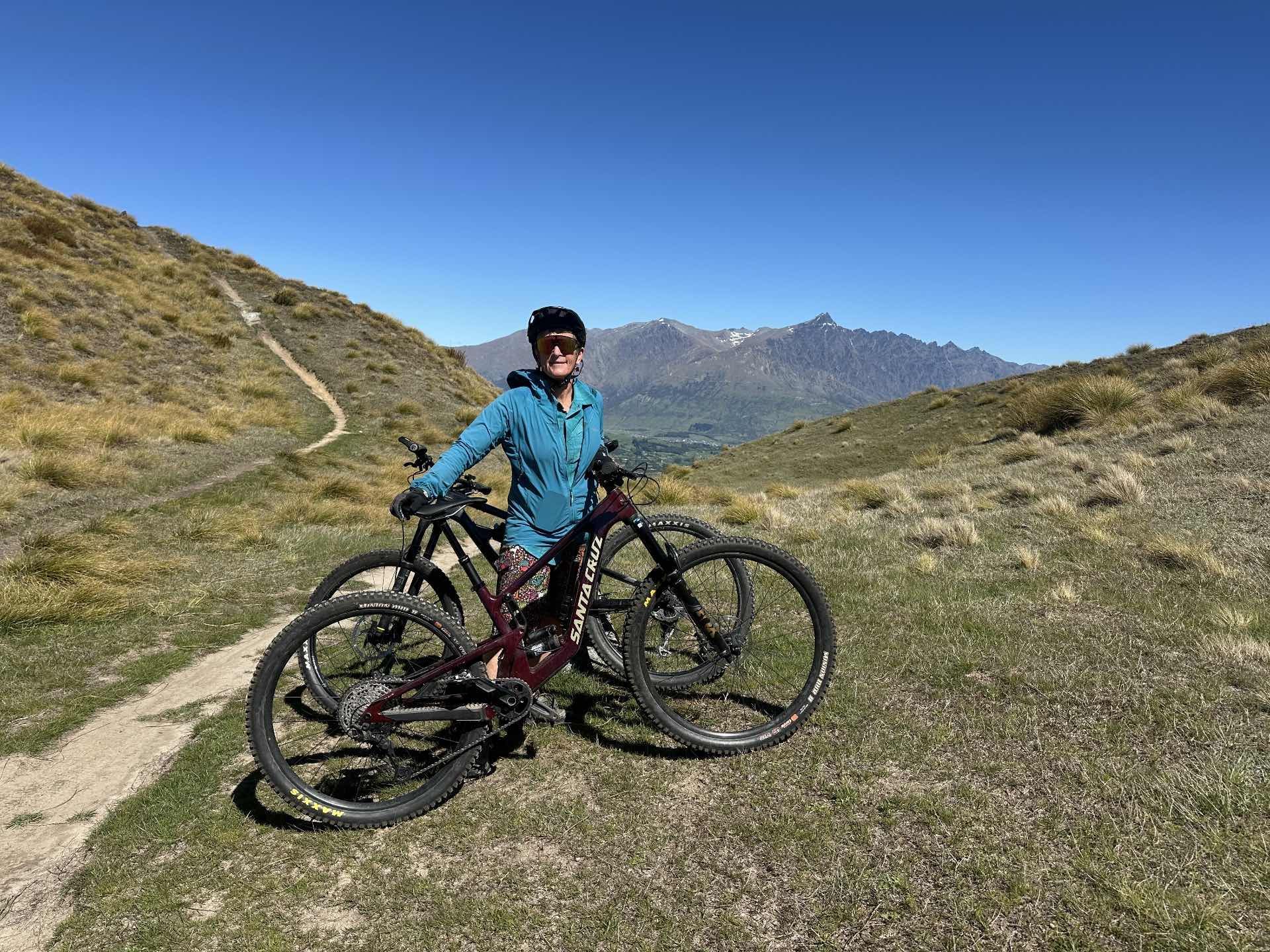High trust – high risk

Beware of people handing you water bottles (no Greeks bearing gifts around right now) – in this case it was no stranger, but Chris kindly giving me a drink on our ride today. I took a swig, swallowed involuntarily, then said, “WHAT WAS IN THAT WATER BOTTLE?”. Chris took a look, said, “I don’t think I would drink that.”, and tipped the rest of the liquid out; it looked sort of thick and milky and had tasted slightly sour. This is no time to get any sort of infection or injury. We live in the COVID-19 capital of NZ (a slight exaggeration, we live 30km from Queenstown, as the COVID-19 capital) and I most certainly do not want to go to the doctor or hospital in any near future (in case that means that the near future becomes the sum total of my future). Interestingly, I feel far more aware of risks to my health currently than when cycling in Tajikistan or Madagascar, both places where doctors were a very scarce item. Having swallowed the ‘water’ I immediately felt both wild for trusting Chris to actually think about what was in the water bottle, and hyperconscious of any strange sensations in my stomach, although clearly even the most energetic bacteria take quite a while to multiply in there.
Our national COVID-19 experiment relies heavily on trust of others to do the ‘right thing’, because if we do the right thing and they don’t, we will all be in the same leaky boat. There are safeguards around that trust requirement – the Government opened up a website for dobbing others in when doing the wrong thing , which was rapidly overwhelmed by reports. However, the Government and police are not all-seeing, or all-powerful, and nor do we want them to be (more on that another time). Therefore, we are left with a trust in our community will to comply.
I like that Jacinda Ardern and her team thank people for doing the right thing. I think most of us would agree thanking people for behaving well is a far preferable way of being encouraged to behave well, as compared to implying that you might do the wrong thing and telling you off in advance. I think most people would also be in agreement that human beings, by and large, actually want to do the right thing (though some need further education on what that might be); the number of people out there who deliberately take advantage of others by breaching trust are a very small proportion of the population. Although we would like 100% compliance, we can probably live with the small population who are determined to do the wrong thing, and curb them through societal pressure, and the dob-in line.
Given the above, I am disappointed that it appears the government thinks that people can be trusted to do the right thing when returning to New Zealand, but they can’t be trusted to go for a sensible swim (amongst other activities currently on the ‘not to be engaged in’ list). We have 3500 returning New Zealanders who have a high chance of being infected and thus infectious, and we can apparently trust them to stay in their houses and self quarantine. However, we can’t trust New Zealanders to go in the water and not drown. We also can’t simply make a blanket statement that no-one is responsible for rescuing you if you do look like you are drowning, although we can allow doctors to choose who will get medical help (and thus most likely survive), and who will go home (and most likely die), in the event of an oversupply of ICU patients resulting from the COVID-19 pandemic.
In 2019 there were 702 lifeguard rescues (and 82 preventable drownings ). If we averaged the rescues over a year that would give us an average of 50 potential drownings per month. So, in a 4 week Level 4 lockdown we could have 50 additional contacts between people, or we could have 50 extra drownings (yes I know there are quite a few problems with using the figures this way because e.g. I haven’t included boating rescues, or excluded small children who should be supervised in any circumstance, but it gives a sense of scale of the issue). Would New Zealanders be willing to risk that sort of number of deaths, or contacts, for the enjoyment that people would get out of being able to undertake water-based activities in a time of deprivation?
However, I have moved away from the main point, which is, why can we trust people not to infect others but not trust people to go in the water safely? We are told that most people will and are complying with self quarantine; so how come most people will not comply with safe swimming? How will the people who would like to swim, but feel they are not deemed trustworthy, then behave? Does this encourage them to behave well in other regards? For a trust-based system to be effective, it would seem like we need everyone to feel equally trusted and this particular government restriction is really not hitting the mark.
A little return to the numbers, which I am mostly avoiding so I don’t try watching the pot boil… why are community transmission figures being reported as a percentage ? This is a classic mistake; we easily underestimate the impact of a percentage because it is a small number. Only 1% of COVID-19 transmissions have been deemed as community transmission (though 17% are still being investigated). 1% sounds good, that would be 8 people at present, and another 136 under investigation (which doesn’t sound quite so good). However, if you had 10,000 cases, 1% would be 100 people in the community infecting others, and 17% would be 1700. The Ministry of Health needs to change to reporting community transmission as an absolute number; perhaps they will realise this as total cases climb.
Also, a quick return to the issue of testing regimes for COVID-19. An article provided by my friend Ruby suggests that a country should be running sufficient tests such that only 10% of them return a positive result (compared with some USA labs returning 50% positives) . New Zealand is doing pretty well on this score – our running average is around 1800 tests per day, vs 76 confirmed cases identified yesterday i.e. 4% positives. For another comparison of New Zealand’s performance, South Korea is reported to have controlled COVID-19 through testing and surveillance for contact tracing. They had done 6,150 tests per million people by March 20th, exactly two months after first detection, and 1 month after they reported 80 cases. New Zealand has already conducted 5,200 tests per million people, 1 month after our first detected case. This does, once again, raise the issue of the need for increased surveillance and reporting of case specifics, however… to be continued.
And finally, for any of you concerned about my health, several hours later I have suffered no ill effects from that water. As soon as we got home I took some antibiotics for gut infections that we had left over from overseas travel (won’t be needing those till they are expired), but that was probably unnecessary as Chris finally remembered that his water bottle had contained magnesium replacement solution which would have concentrated at the bottom of the bottle. However, my trust levels are still somewhat impaired on the water bottle front.
Censor’s warning, not to be shown to anyone who has not previously been exposed to swear words or those prone to infection by such.





